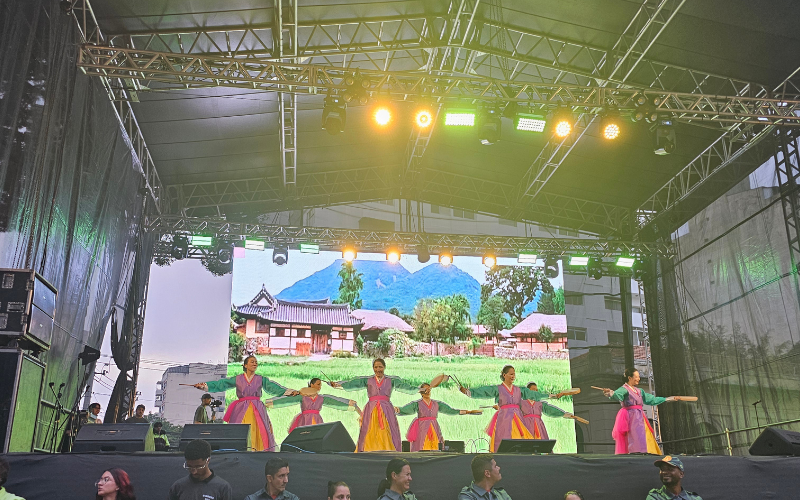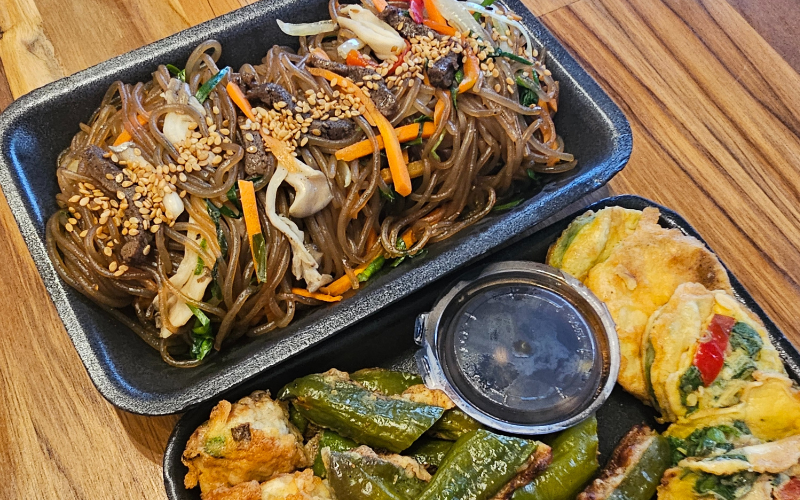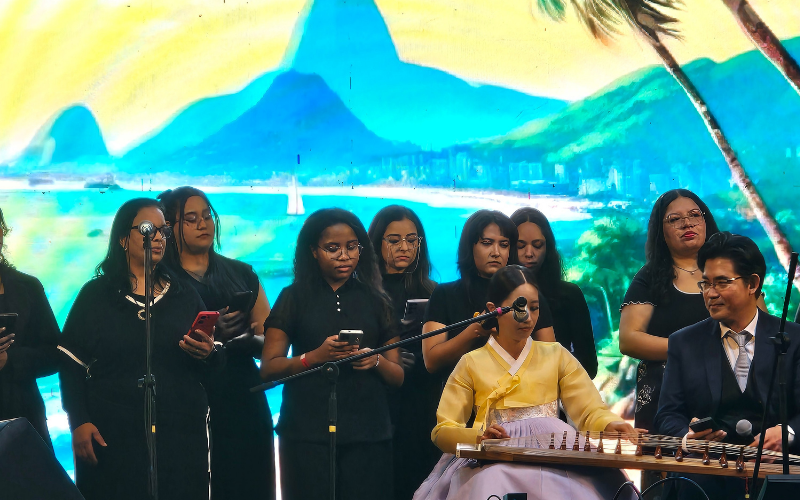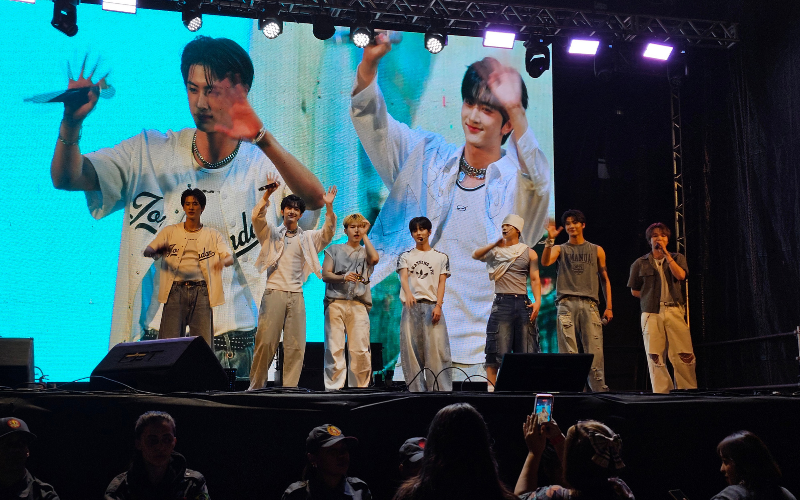My Experience at the Korean Culture Festival in São Paulo: Celebrating Tradition, Modernity, and the Memory of Liberation
2025-08-18Last weekend, on August 16th and 17th, the 2025 Korean Culture Festival took place in São Paulo! The festival was held in the Bom Retiro neighborhood, an area known for Korean immigration in Brazil, and transformed it into a stage celebrating Korean identity. My experience at the festival was incredible—it featured traditional music performances, debates, a food fair, and cultural activities that created a truly unique experience. In addition, there was also an exchange fair with four Korean universities!
More than just a cultural event, for me the festival carries deep historical symbolism. Its timing coincides with Korea’s Liberation Day (Gwangbokjeol), celebrated on August 15th, when in 1945 the country regained its independence after 35 years of Japanese occupation. The term Gwangbok literally means “the return of the light,” and the holiday is one of the most important for Koreans, as it represents the rebirth of sovereignty and national hope. By marking this date in São Paulo, the festival not only introduces the public to the cultural richness of Korea, but also pays tribute to the memory of a people who preserved their traditions even in the face of adversity.
The event also plays a vital role in strengthening the Korean community in Brazil, which now has a history spanning more than five decades in the country. For immigrants and their descendants, the festival is a space of recognition and belonging, where they can reaffirm their roots and share experiences with the Brazilian public. For us Brazilians, it’s an opportunity to experience Korea’s diversity in an authentic and accessible way, from the energy of K-Pop to the charm of traditional clothing (hanbok), folk music, and cuisine.

And speaking of cuisine, I was able to enjoy Japchae (잡채) and Jeon (전)—the delicious pancakes—together with my friends, and it was such a wonderful experience. Japchae is one of my favorite Korean dishes, and being able to share it at the festival made the moment even more special.

Throughout the festival, I watched various performances spread across the entire neighborhood and even got to see my friend on the main stage with the Sejong Choir, which performed during the Gayageum showcase! We also watched Taekwondo demonstrations and debates about literature, migration, and identity. This diversity of activities shows that Korean culture is plural, dynamic, and open to dialogue.

And beyond all the traditional performances, we also enjoyed the K-Pop group YOUNITE, one of the main highlights of the festival, who closed the night on both days!

For me, the most fascinating part of the event is that it values the past, the present, and also the future. The festival highlighted traditional aspects such as the Sejong Choir, Gayageum performances, Taekwondo, and discussions on literature, migration, and identity. This diversity of activities shows that Korean culture is plural, dynamic, and open to dialogue.
Thus, the Korean Culture Festival goes beyond entertainment. It reaffirms that culture is memory, identity, and dialogue between peoples. By taking place in São Paulo precisely during Korea’s Liberation period, it connects the past struggle for sovereignty with the present celebration of friendship between nations, strengthening the cultural bridges that unite Brazil and Korea.
(I took all the pictures and I have the permission to post them)
How about this article?
- Like0
- Support0
- Amazing0
- Sad0
- Curious0
- Insightful0


